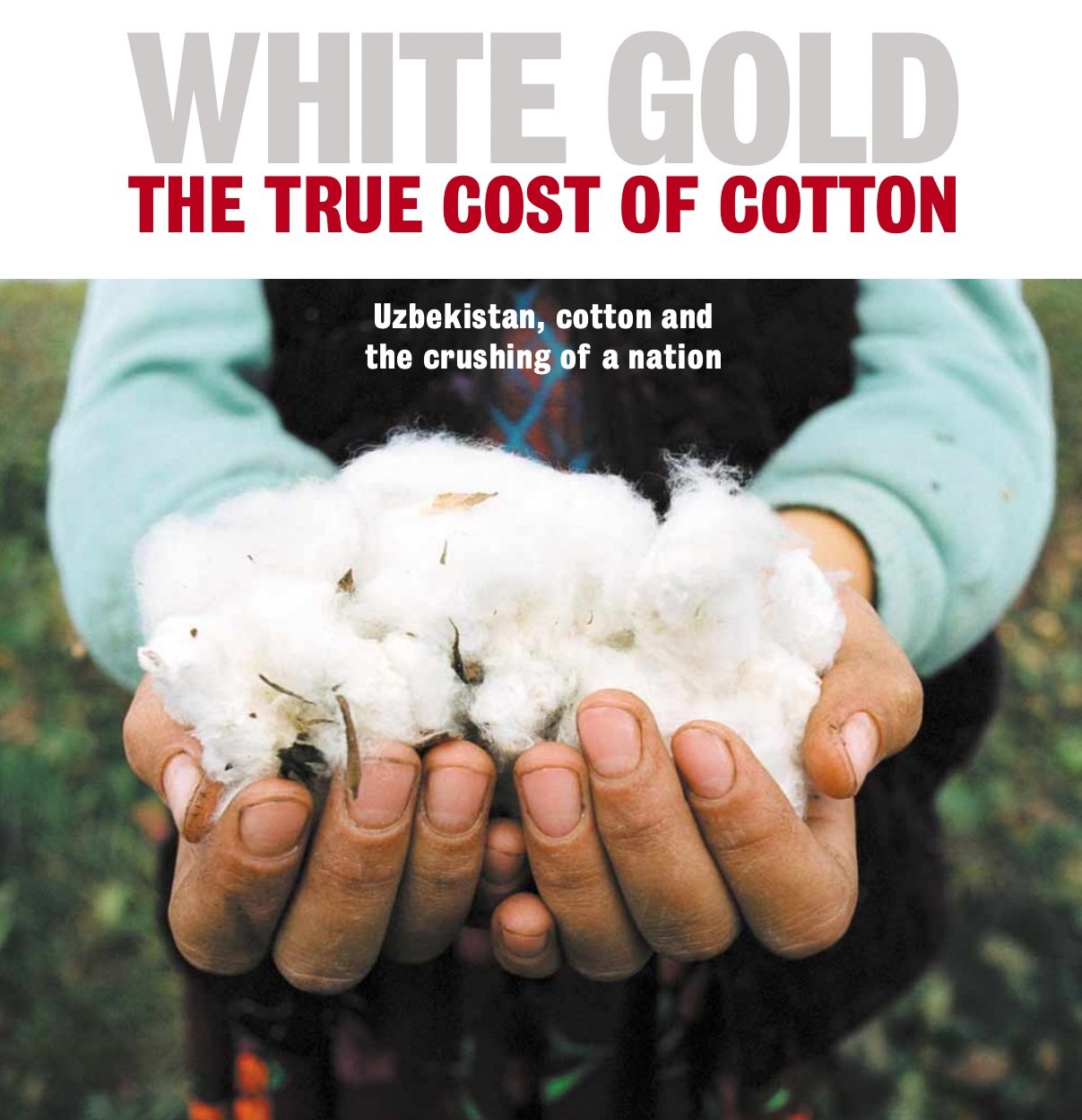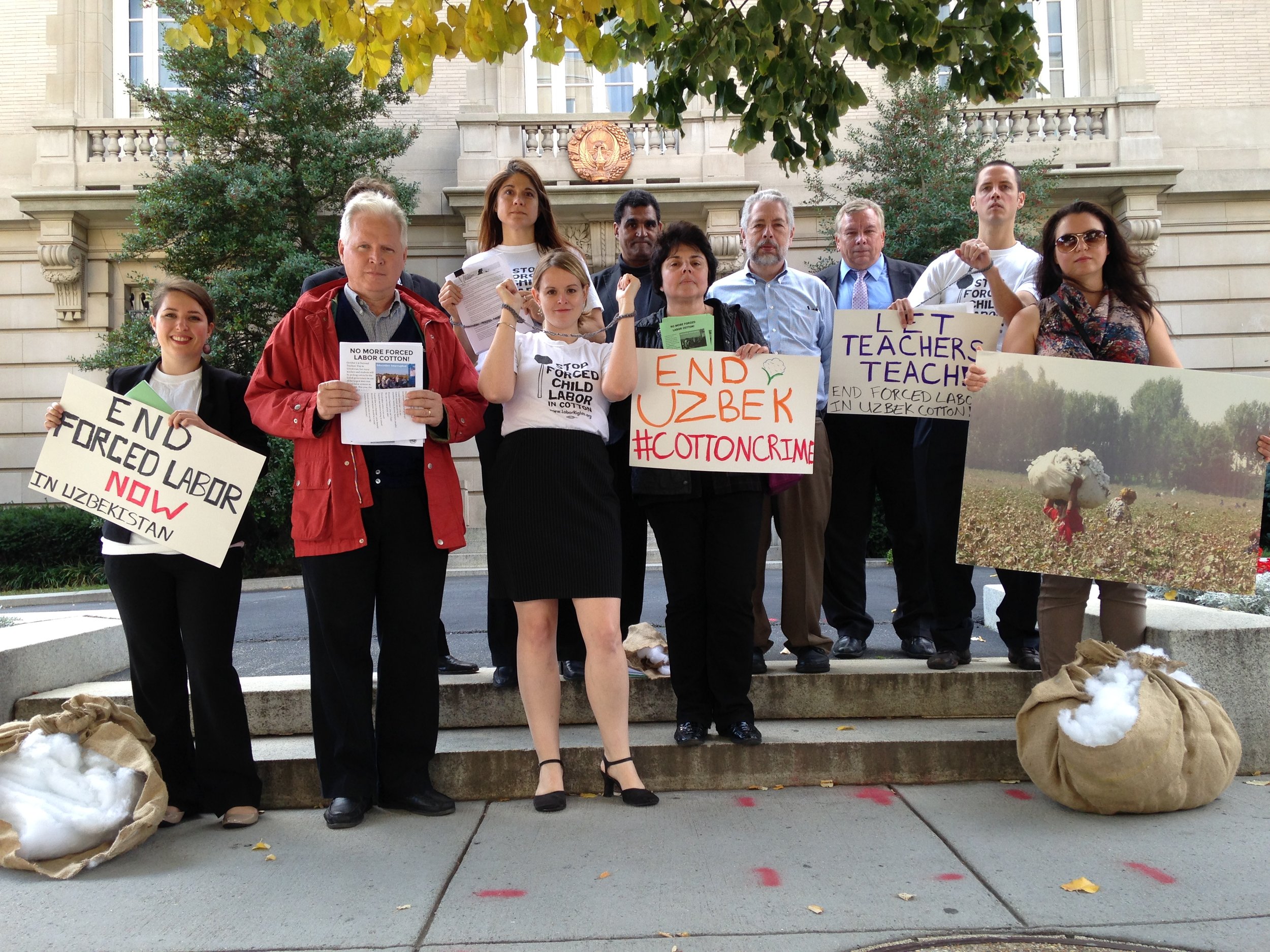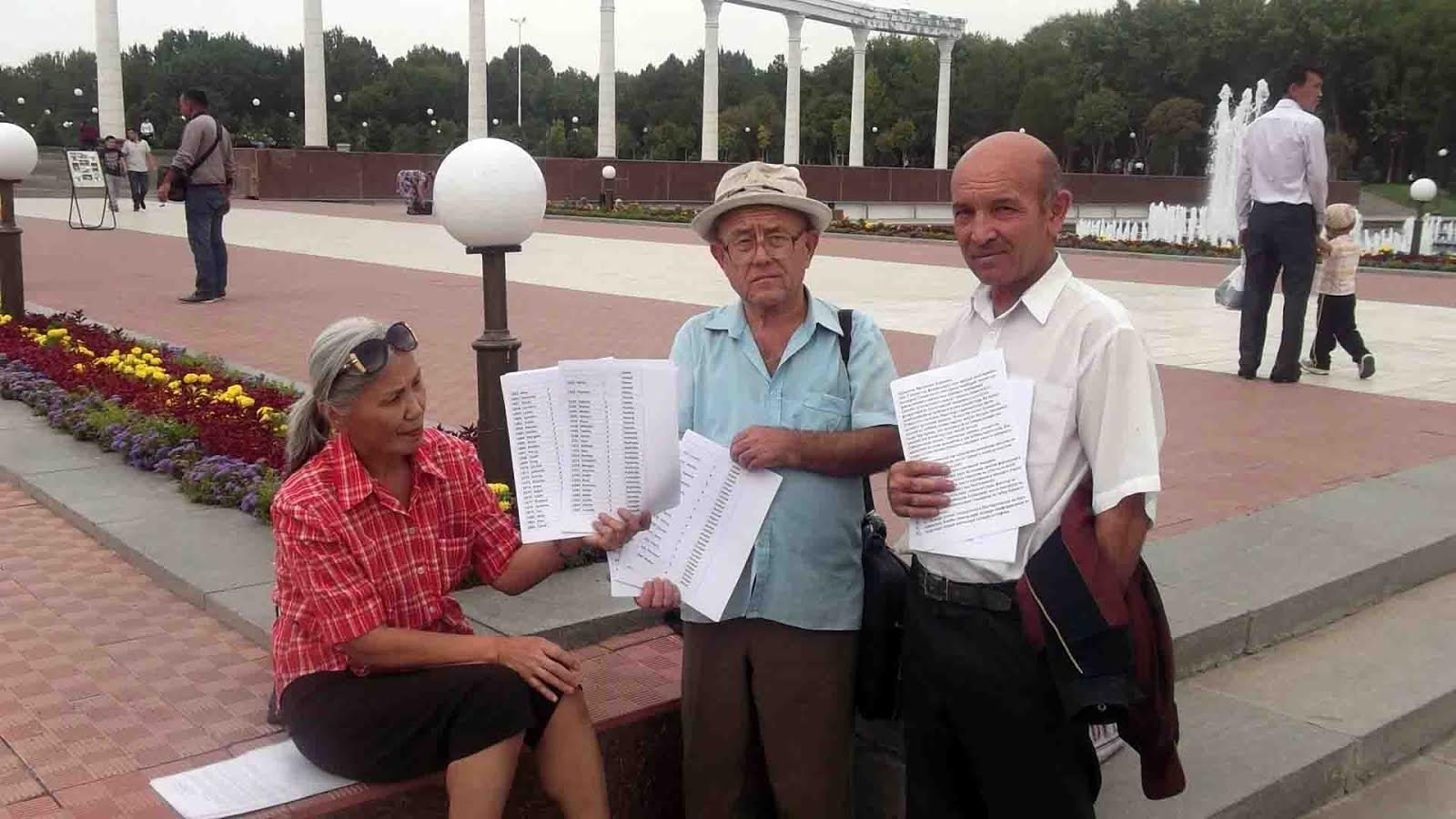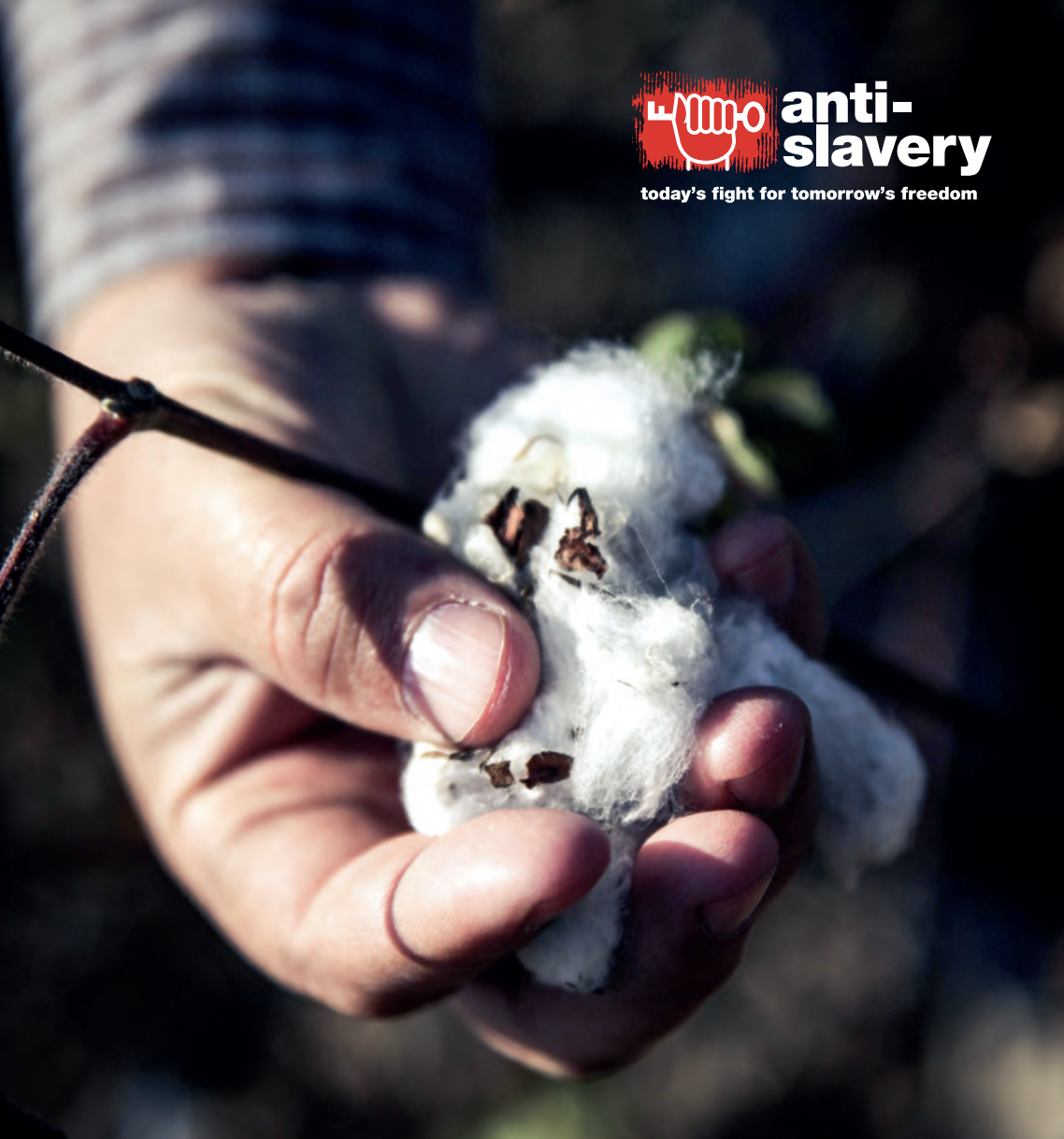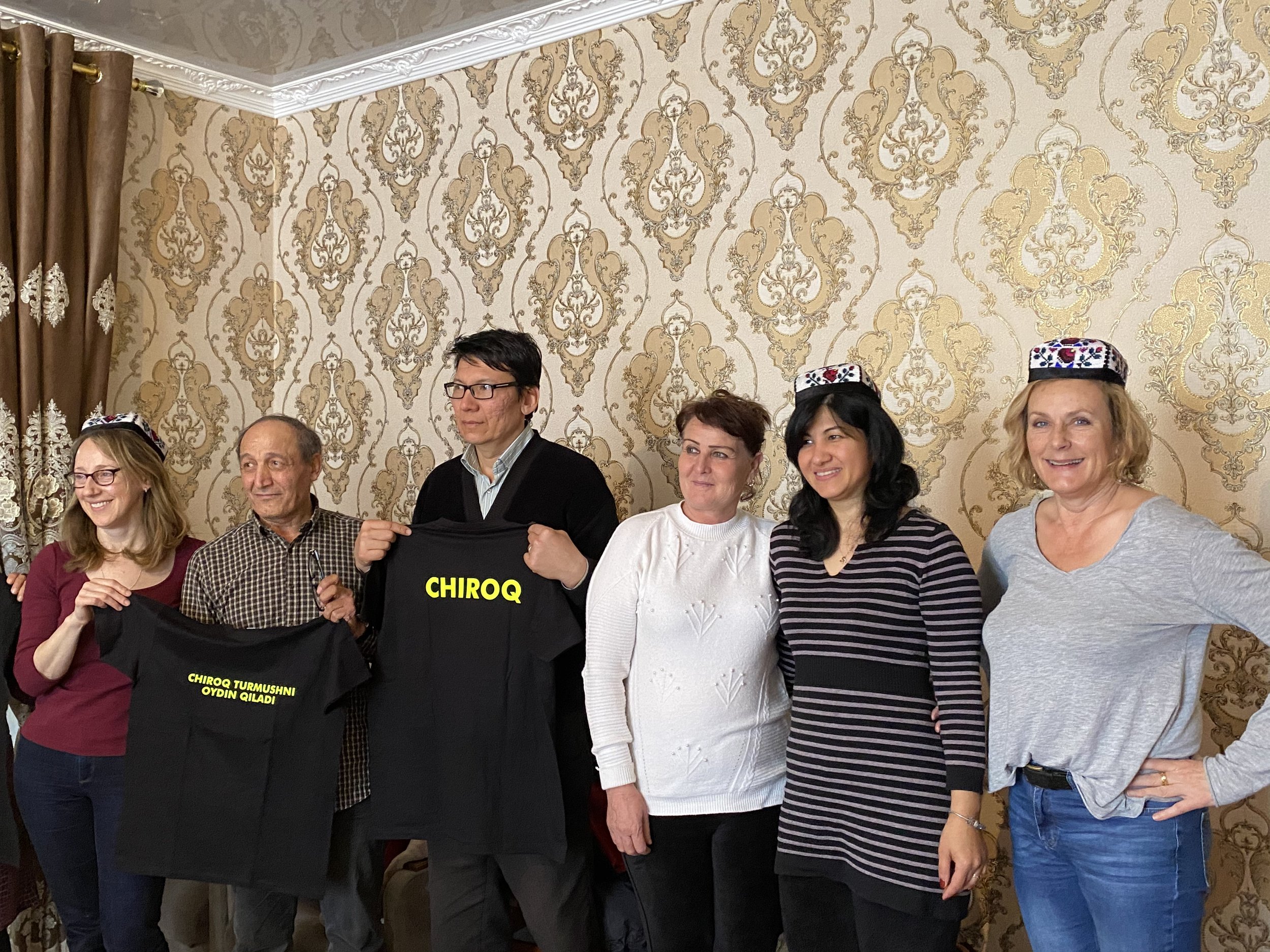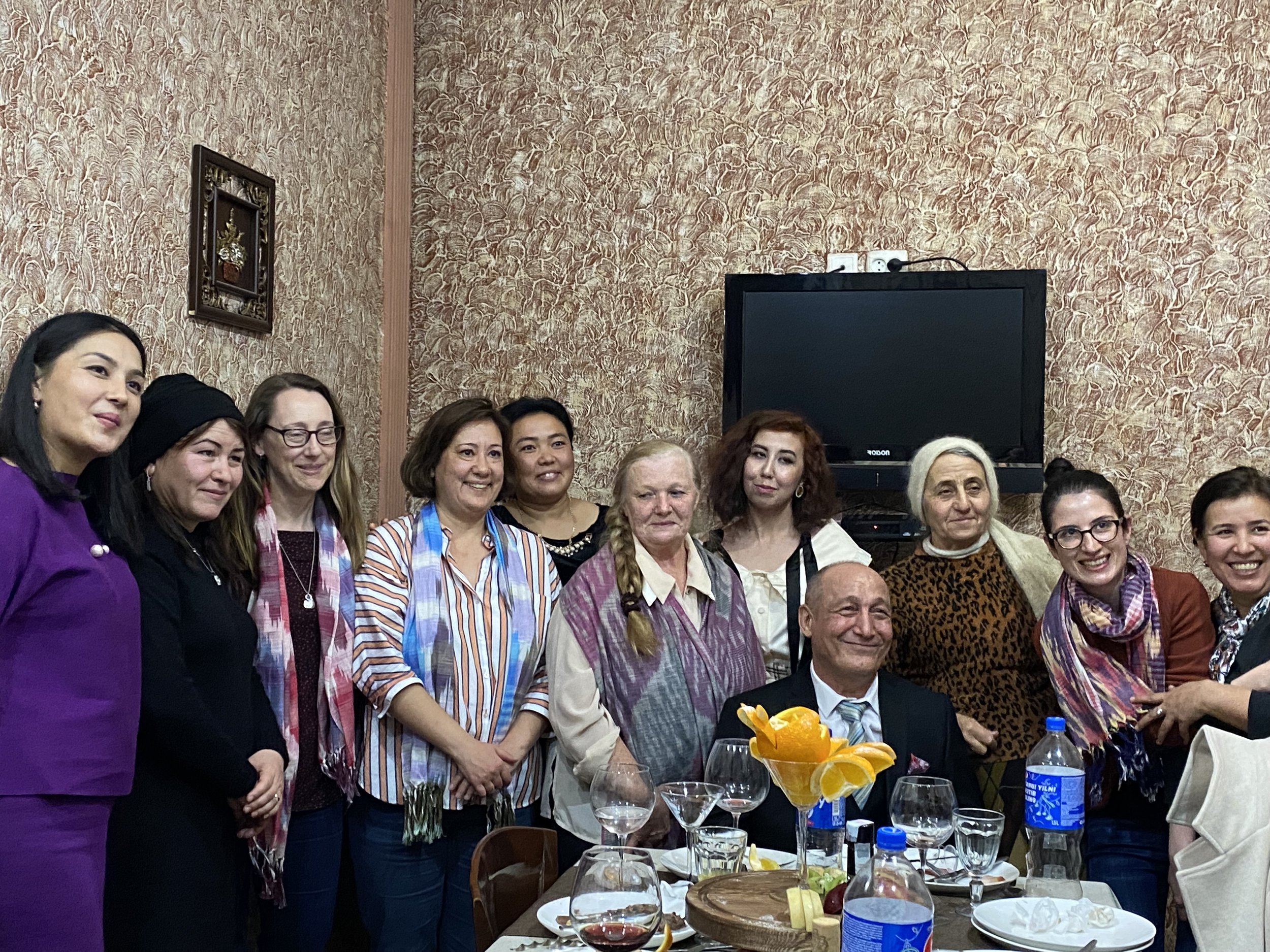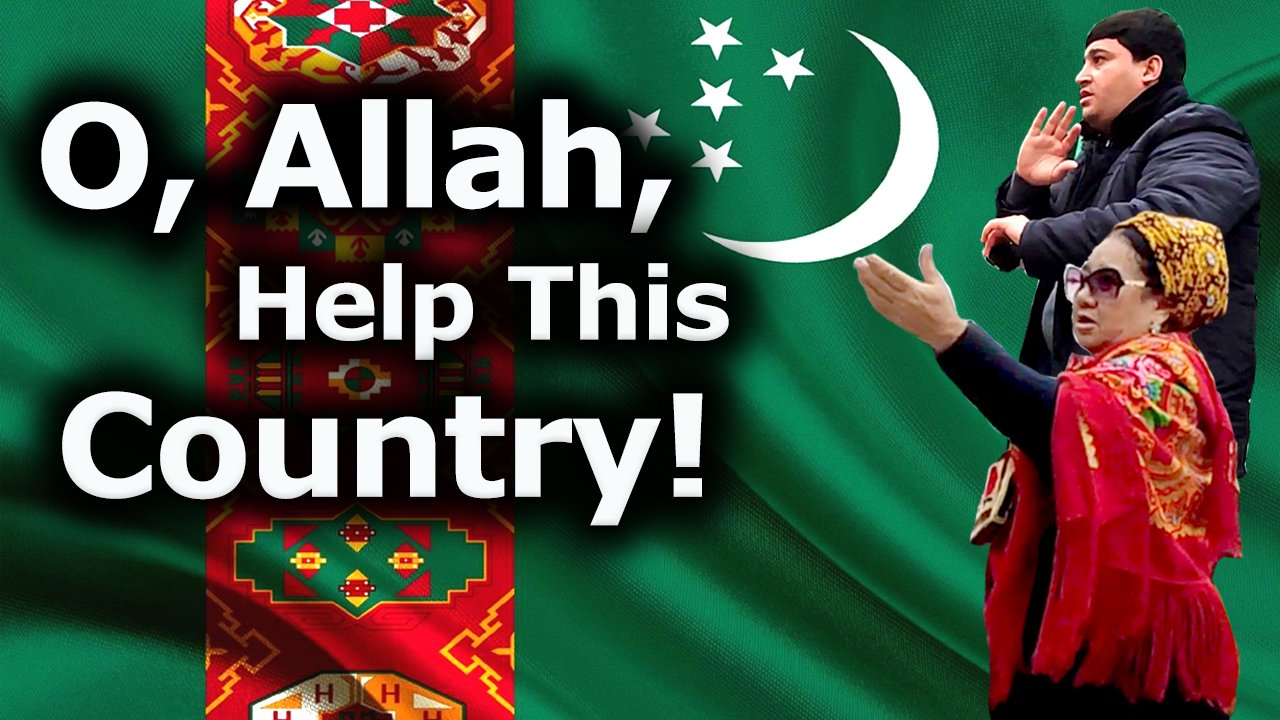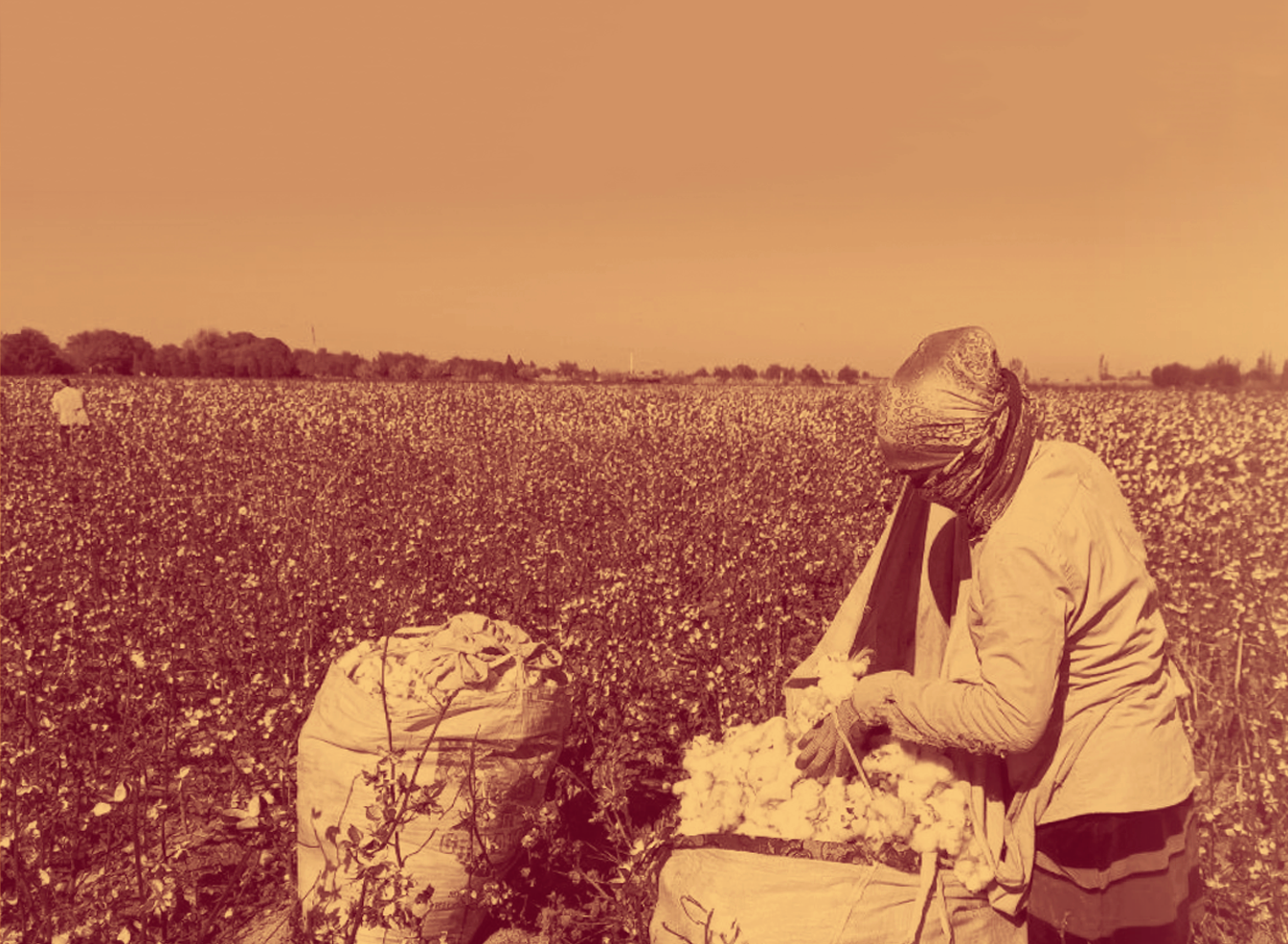
We Are a Coalition of Human Rights NGOs, Independent Trade Unions, Brand Associations, Responsible Investors and Academics, United to End Forced Labor in Cotton Production
Since 2007, the Cotton Campaign has been at the forefront of the fight against state-imposed forced and child labor in the cotton industries of Uzbekistan and Turkmenistan.
We use a wide range of legal, policy, and campaigning tools to promote decent work for cotton workers and enable frontline activists and independent labor rights monitors to drive change in their own communities.
When the Campaign began, both Uzbekistan and Turkmenistan were led by repressive authoritarian regimes. Forced labor in cotton production was widespread and systemic, and independent civil society lacked the space and freedom to organize.
Today, we are witnessing significant and meaningful change in Uzbekistan, while Turkmenistan continues to be one of the most closed and repressive countries in the world.
Years of intense policy advocacy and campaigning, led by Uzbek and international civil society, combined with the Uzbek Government’s political will, made the elimination of state-imposed forced and child labor a reality.
Uzbek Forum for Human Rights, a frontline partner of the Cotton Campaign that has monitored the annual cotton harvest since 2010, found no state-imposed forced labor in the 2021 harvest. Despite these gains, the civic space in Uzbekistan remains constrained and arbitrarily restricted, which puts the reforms to end forced labor at risk.
The Uzbek Government for the first time acknowledged the forced labor problem in 2017 and has since undertaken steps to reform its system. These steps have included a fast-paced privatisation of the cotton sector to create cotton textile companies, known as “clusters”. These companies control all aspects of the textile value chain from cotton growing, harvesting, and ginning, through to production of value-added goods. However, with its primary focus on economic reforms and supply chain integration, the Uzbek transformation process has not sufficiently emphasised the need to empower civil society and develop effective institutions for transparency and accountability in the cotton sector.
At this new stage in Uzbekistan’s development, the Cotton Campaign highlights the need for broader reforms to empower civil society, protect freedom of association and promote responsible sourcing.
Turkmenistan remains one of the most repressive countries in the world. Every year during the harvest, the Government forces tens of thousands of public sector workers to pick cotton in hazardous and unsanitary conditions and extorts money from public employees to pay harvest expenses.
The Turkmen Government is resisting reforms to the industry and has taken harsh actions against those who report on abuses in the sector. Nonetheless, there are some small openings that indicate the Government is sensitive to international, public pressure.
The Cotton Campaign continues to push for reform and works with international stakeholders to increase the political and economic pressure on the Turkmen Government to end forced labor in cotton production.
Workers picking cotton in the 2021 cotton harvest, Uzbekistan
-
According to the ILO Forced Labor Convention, 1930 (No. 29), forced or compulsory labor is “all work or service which is exacted from any person under the threat of a penalty and for which the person has not offered himself or herself voluntarily.” We refer to “state-imposed forced labor” when forced labor forms part of a state policy and is widespread or systemic.
State-imposed forced labor in cotton production means that a government maintains total control of the cotton sector. In Turkmenistan, for example, this includes how the cotton is grown (by forcing farmers to meet official production quotas, under threat of penalty), to how it is harvested (by forcing public sector workers and children to pick cotton in hazardous and unsanitary conditions), processed, and traded (with no financial or other benefits from cotton production trickling down to the population).
A state-imposed forced labor system is a top-down system and generally involves officials at every level of government, including the top leadership, the Ministries covering agriculture, economic relations and trade, and local government officials. For a visual representation of the Uzbek Government's forced labor chain of command system, as it still functioned in 2015, click here to access Uzbek Forum's interactive report about the 2015 cotton harvest.
-
The Cotton Campaign uses a wide range of tactics to pressure governments to end abusive practices. These include:
Independent reporting of labor rights abuses in cotton fields and the impact of state-imposed forced labor systems on society, including deaths, injuries, and interrupted educations
Human rights advocacy with international stakeholders, such as global brands and retailers, governments, and international financial institutions to leverage their influence and push for reform on the ground
Increasing the economic pressure on repressive governments to end abusive behavior by boycotting cotton made with forced labor
Exposing and seeking to end corporate and institutional complicity in forced labor systems
Advocating for the introduction of robust mandatory human rights due diligence (mHRDD) and corporate accountability legislation across jurisdictions, requiring companies to map and publicly disclose suppliers across their value chains
Advocating for robust enforcement of existing forced labor import bans in the U.S. and Canada, and the introduction of import control measures against forced labor products in other jurisdictions
Campaigning and accountability actions against repressive governments, including prompt reporting in international fora on cases of retaliation against human rights activists and labor monitors
-
The Cotton Campaign is a core partner of the Coalition to End Forced Labor in the Uyghur Region. The Coalition uses research, campaigning, policy and legal tools to build the economic and political pressure on the Chinese Government to end state-sponsored forced labor and other egregious human rights abuses against people from the Uyghur Region in China.
A number of NGO and trade union members of the Cotton Campaign are Steering Committee members of the Coalition to end Uyghur forced labor, including the AFL-CIO, Anti-Slavery International, and Global Labor Justice-International Labor Rights Forum.
High school students and teachers picking cotton during the 2020 harvest in Turkmenistan. The picture has been edited to protect the monitors and workers exposing forced labor from retaliation.
Uzbekistan
Our work in Uzbekistan is at a pivotal point.
Uzbekistan seeks to establish itself in the global textile market. This provides a unique opportunity for the Cotton Campaign, international brands, labor and human rights organizations, the Government of Uzbekistan, and newly founded Uzbek cotton companies to work together to create an enabling environment for labor rights and encourage responsible sourcing.
Uzbekistan: A Cotton Campaign Delegation met with the First Deputy Minister of the Ministry of Labor and his team, December 2021. Both parties reiterated their commitment to continue working together to protect human and labor rights in the cotton sector of Uzbekistan. During the 2021 cotton harvest, Cotton Campaign’s partner Uzbek Forum actively cooperated with the Ministry of Labor to exchange information and to report cases of forced labor.
Cotton workers, farmers, and the broader civil society must be able to advocate for decent working conditions and report independently and transparently on problems, both individually and collectively. Yet in Uzbekistan, cotton workers have no independent organizations or trade unions to voice concerns and defend their rights. Their freedom of association and expression remains severely constrained, with many independent labor and human rights NGOs facing challenges to register and monitor the human rights situation in their country.
The Cotton Campaign remains focused on implementing a human rights agenda in Uzbekistan and supporting Uzbek human rights defenders in their efforts to widen the space for civic participation, strengthen the protection of freedom of association and expression, and encourage responsible sourcing of cotton products from Uzbekistan.
-
Findings of independent civil society monitoring show that state-imposed forced labor was not used in the 2021 cotton harvest.
However, significant risks of forced labor and exploitative working conditions are ongoing. These include:
In some districts, government officials remain involved in the recruitment of cotton pickers, creating risks for coercion and recruitment fees
Cotton pickers continue to perceive a threat of penalty for refusing to pick cotton
Unequal relationships between farmers and the cotton companies they produce cotton for. Farmers are often requested to sign blank contracts
There are no mechanisms to prevent, identify and address forced labor or labor exploitation at the farm level or at other stages of cotton production
Furthermore, the civic space remains constrained and arbitrarily restricted, which puts the reforms to end forced labor in cotton production at risk.
-
Signed by over 330 brands and retailers, the Uzbek Cotton Pledge was critical in the Cotton Campaign’s success to increase the pressure on the Government of Uzbekistan towards reforming its forced labor system.
Findings of independent civil society monitoring show that in 2021, for the first time, state-imposed forced labor was not used in the cotton harvest. As a result, on March 10, 2022, the Cotton Campaign ended its call for a global boycott of cotton from Uzbekistan and lifted the Uzbek Cotton Pledge.
However, significant human rights risks remain attached to sourcing Uzbek cotton, including constraints on freedom of association, civic space restrictions, and unequal relationships between farmers and the companies they produce cotton for.
The Cotton Campaign encourages responsible sourcing of yarn and cotton products from Uzbekistan and it developed a Framework for Responsible Sourcing to support brands in conducting their human rights due diligence.
Tailored to the context of Uzbekistan, the elements of the Framework - independent monitoring, capacity building, the operation of an independent grievance mechanism, accountability, and traceability - are based on international best practice to safeguard workers’ rights and ensure compliance with mandatory human rights due diligence and other supply chain obligations.
Uzbek civil society plays a key role in ensuring the reforms to end forced labor are sustainable. Independent, ongoing monitoring and reporting of labor rights violations by civil society and cotton workers, across regions and districts, are essential to consolidate the reforms.
Uzbekistan: A Cotton Campaign Delegation met with Uzbek human rights activists and independent labor monitors, January 2020.
Turkmenistan
In Turkmenistan, the Government continues to resist reforms.
The Cotton Campaign has repeatedly sought to engage the Turkmen authorities, but the Turkmen Government shut the door to dialogue and continues to deny the forced labor problem. For this reason, our current advocacy and outreach actions primarily focus on activating the international community to join us in challenging the Government’s abusive behavior.
Turkmenistan: Buses transporting public sector workers to the cotton fields during the 2016 harvest
A critical aspect of our strategy to end forced labor in Turkmen cotton production is to increase the economic pressure on the Government of Turkmenistan by limiting access of Turkmen cotton goods to international markets. We do this through a wide range of tactics.
We host the Turkmen Cotton Pledge. By signing the Pledge, 140 companies have so far publicly committed to not use Turkmen cotton in their products so long as it is produced with forced labor. A similar Cotton Pledge – signed by over 300 international brands – proved critical in the Cotton Campaign’s success to pressure the Uzbek Government to end forced labor in cotton production.
We also advocate for the introduction of robust mandatory human rights due diligence (mHRDD) and corporate accountability legislation across jurisdictions to require companies to map and publicly disclose subsidiaries, suppliers, sub-suppliers and business partners in their whole value chains.
Finally, we conduct supply chain research to trace Turkmen cotton and use our findings to alert authorities. We engage with policy makers and customs authorities to ensure robust enforcement of the existing forced labor import bans in the U.S. and Canada, and advocate for the introduction of import control measures against forced labor products in other jurisdictions.
-
Our Turkmen NGO partners, Turkmen News and Turkmen Initiative for Human Rights (TIHR) work with a group of brave Turkmen human rights activists, who provide first-hand reports of conditions in the cotton fields.
In addition to monitoring and reporting on the forced labor conditions in the harvesting of cotton, our Turkmen partners conduct research into the structure and amounts paid to farmers by the State for mandated crops and deductions for inputs and other costs. Their findings prove that cotton production in Turkmenistan is under full control by the State and that the Government forces farmers to meet official production quotas, under threat of penalty.
Furthermore, research by Human Rights Watch (HRW) and other international NGOs shows that Turkmenistan remains one of the most repressive countries in the world. The Government tolerates almost no freedom of expression or criticism and severely suppresses independent scrutiny of labor practices. A prominent example is the case of activist Gaspar Matalaev, who in 2016 was tortured and sentenced to three years imprisonment for reporting on abuses in the cotton sector.
-
There are two main streams of Turkmen cotton entering the global markets:
As finished goods produced in Turkmenistan and directly exported to Europe or the U.S., and
From suppliers in other countries, in particular Turkey and Pakistan, that produce textiles using Turkmen cotton.
For example, global trade data shows that in 2020, the EU imported over €7,5 million worth of cotton and over €5 million worth of textiles directly from Turkmenistan. These figures exclude the products made with Turkmen cotton that entered the EU through different routes, within a sprawling cotton value chain.
Research has shown that the Turkish textile manufacturing is a primary gateway for products made with Turkmen cotton. This puts EU textile and apparel companies’ supply chains at particular risk, as Turkey is the third-largest textiles supplier to the EU and 20% of Turkish exports to the EU are textiles.
We are working to trace Turkmen cotton and advocate with global brands and retailers, policy makers, and customs authorities across jurisdictions to eliminate it from the global supply chain.
-
All products containing Turkmen cotton are tainted by forced labor. Further, Turkmenistan has no independent civil society to report transparently and advocate for decent working conditions.
This repressive system makes it impossible for brands and retailers to conduct any credible due diligence on the ground to prevent or remedy forced labor.
The only way brands can ensure their operations are free of forced labor is by mapping their supply chains all the way down to the raw material level and exclude all cotton with Turkmen origins.
If you are a brand or retailer, sign the Turkmen Cotton Pledge and publicly commit to not to use Turkmen cotton in your products.
15 Years of Campaigning and Advocacy
- A Photo Timeline of the Key Actions and Milestones -
Impact and Achievements
Our main goal is to help build a human rights environment where Uzbek and Turkmen cotton workers and farmers live and work in dignity. The progress we have made towards achieving this is a result of two factors.
1. The Strength of Our Coalition
We are a group of human and labor rights NGOs, supply chain transparency groups, brand and retail associations, independent trade unions and academics, all united to end forced labor and promote decent work in the cotton industry.
Each organization contributes its strengths and (sectoral and regional) expertise to raise awareness of the forced labor problem, strengthen the Coalition’s human rights advocacy, find new allies and consolidate relationships, and design and implement effective accountability actions.
2. Our Integrated Strategy
We use a wide range of policy, legal, and campaign tools to achieve decent work in the cotton industry. To effectively leverage the influence of international stakeholders to push for reforms in Uzbekistan and Turkmenistan, we continuously adapt our strategy to the evolving political and economic context. Over the years, two key elements of our strategy have remained unchanged: 1) independent monitoring and reporting on the labor rights situation in the cotton fields and 2) boycotting forced labor cotton.
A critical pillar of the Cotton Campaign’s work has been the independent monitoring of the annual cotton harvest, conducted in Uzbekistan by Uzbek Forum, and in Turkmenistan, by a network of independent monitors coordinated by Turkmen News and Turkmen Initiative for Human Rights (TIHR). Their findings have informed the Campaign’s advocacy and accountability actions for over a decade.
Boycotting cotton made with forced labor has been another core part of the Cotton Campaign’s strategy, enabling us to not only raise awareness of forced labor situations, but also flag the forced labor risks associated with textiles retailed in Europe and the U.S.
In 2007, when the Cotton Campaign devised this strategy, cotton supply chains were incredibly opaque, with brands and retailers failing to disclose even their finished goods suppliers (first-tier manufacturers). At the time, calling on companies to map out their supply chain and exclude cotton originating in Uzbekistan was revolutionary. Since then, it has contributed to a growing movement for increased supply chain transparency and accountability for using forced labor in the production of goods.
-
When the Cotton Campaign launched in 2007, the Uzbek Government was forcing over 1 million children and adults, including medical staff, public sector employees and students, to pick cotton every year during the harvest.
Years of intense policy advocacy and campaigning, led by Uzbek and international civil society, combined with the Uzbek Government’s political will, made the elimination of state-imposed forced and child labor a reality. Uzbek Forum for Human Rights, a frontline partner of the Cotton Campaign that has monitored the annual cotton harvest since 2010, found no state-imposed forced labor in the 2021 harvest.
Below you can find the key elements our strategy that made this achievement possible:
Independent monitoring of the annual cotton harvest in Uzbekistan. Since 2010, Uzbek Forum for Human Rights, our main frontline Uzbek partner, has monitored the harvest each year. Uzbek Forum’s network of independent and trained monitors is highly skilled in monitoring labor and human rights issues and has a wide range of contacts in rural communities. Every year, Uzbek Forum conducts hundreds of direct interviews with cotton pickers, farmers, local government officials, and employees of (state) organizations directly involved in the cotton harvest, and collects and analyses information received through media and social media.
Prompt reporting to the international community on the Government’s egregious abuses against human rights activists and independent labor rights monitors. The Cotton Campaign and its partners exposed cases of arbitrary detention, threats, and degrading ill-treatment by Government officials to silence independent monitors and undermine their ability to conduct research and provide information about the human and labor rights issues in cotton production. Before the Uzbek Government publicly acknowledged that Uzbek cotton was being produced with forced labor and began taking steps to end this practice, Government officials took harsh action against anyone who exposed this.
Today, the civic space in Uzbekistan remains constrained, tightly controlled, and arbitrarily restricted. Uzbekistan’s reform program has produced results in terms of eliminating the systematic forced labor of pickers. But in prioritizing prohibition and enforcement, this approach has failed to open up space for independent unions, allow civic participation and develop systems of oversight, transparency, and governance. As such, it has allowed new abuses to emerge.
Maintaining a Company Pledge Against Uzbek Forced Labor Cotton. In 2010, the Cotton Campaign and its partner Responsible Sourcing Network (RSN) launched the Company Pledge Against Forced Labor in the Cotton Sector of Uzbekistan. By signing it, brands and retailers publicly committed to not use Uzbek cotton in their products as long as it is produced with state-orchestrated forced labor.
Within one year, the Pledge was signed by 60 brands. By 2021, the Pledge reached over 320 signatory brands. The Pledge has been critical in the Cotton Campaign’s success to pressure the Uzbek Government to end child and forced labor in cotton production.
Findings of independent civil society monitoring of the 2021 harvest indicate that state-imposed forced labor is no longer used in the cotton harvest. As a result, on March 10, 2022, the Cotton Campaign ended its call for a global boycott of cotton from Uzbekistan and announced that the Uzbek Cotton Pledge has been lifted.
Advocacy with International Financial Institutions (IFIs). Through advocacy and campaigning, the Cotton Campaign successfully leveraged the IFIs’ commitments to human rights to push for reform in Uzbekistan. Research by the Cotton Campaign and Uzbek Forum exposed the World Bank’s links to child and forced labor in projects worth half a billion dollars to the Uzbek Government. Intense advocacy with the World Bank and other IFIs prompted the Uzbek Government’s approval for the ILO to begin a monitoring program in the country and, ultimately, it led to the Government’s historic public acknowledgement of the forced labor problem in a speech by President Mirziyoyev at the UN in September 2017.
Advocacy with the Government of Uzbekistan. In late 2017, the Uzbek Government made a groundbreaking political commitment to end forced labor. Since then, the Cotton Campaign has deepened its high-level dialogue with the Government to engage constructively in Uzbekistan’s reform process. In 2019, the Government invited us to advise on its reform agenda. In response, we developed and presented to the Government a Roadmap of Reforms, which was received positively. The Roadmap builds on three (strategic) pillars: 1) ending systemic forced labor, 2) enacting structural reforms and 3) empowering civil society. We use this Roadmap as the basis for our engagement with the Government and cotton textile companies in the country to ensure that reforms to end forced labor are robust and sustainable.
At this new stage in Uzbekistan’s development, as the country seeks to establish itself in the global textile market, the Cotton Campaign highlights the need for broader reforms to empower civil society, protect freedom of association and promote responsible sourcing.
In 2017, the Government of Uzbekistan embarked on a major economic reform program to privatize the cotton industry and expand the manufacturing sector. Supplier textile companies (known as “clusters”) control all aspects of production, from cotton growing and harvesting, through to various stages of value-added processing, up to manufacturing of finished goods.
This transformation process has, however, primarily focused on supply chain integration. It has not sufficiently emphasized the need for adequate mechanisms to prevent, identify and address labor abuses at all levels of production.
The Cotton Campaign has developed a model of innovative, rights-based solutions, equipped to guide a re-opening of the Uzbek cotton market to international brands and retailers, while protecting workers’ rights and promoting space for independent civil society.
At the same time, Uzbek Forum has been monitoring and reporting on the process and impacts of land transfers from farmers to clusters (direct farming) and the relationships between farmers and the clusters they are producing cotton for (indirect farming).
-
The Cotton Campaign works to:
Raise awareness of the Government orchestrated forced labor system in Turkmen cotton production and
Empower international and Turkmen civil society to address the systemic labor rights abuses in cotton production
The Turkmen Government is resisting reforms to the industry and has taken harsh actions against those who report on abuses in the sector. Nonetheless, there are some small openings that indicate the Government is sensitive to international, public pressure.
The Cotton Campaign has used the following tools and actions to build such pressure over time:
Using independent reports of the forced labor conditions in the cotton fields to advocate with governments, international organizations, brands and investors. These reports are provided by a team of brave, independent activists and labor monitors who work with the Cotton Campaign’s Turkmen partners - Turkmen News and Turkmen Initiative for Human Rights (TIHR) – and run the risk of arrest and torture for doing this work.
Maintaining a Pledge against Turkmen Cotton. So far, 140 brands and retailers signed it and publicly committed to not knowingly use Turkmen cotton in their products as long as it is produced with state-orchestrated forced labor.
Advancing Turkmen forced labor cotton on the agenda of policy makers, in the context of mandatory human rights due diligence (mHRDD) and trade instruments as tools to push for reform. In 2016, the Cotton Campaign and its partners submitted a petition to exclude all cotton products made in Turkmenistan from the U.S. due to the state-imposed forced labor system in cotton production. The U.S. Customs and Border Protection (CBP) subsequently issued a Withhold Release Order (WRO) against Turkmen cotton in May 2018, which was the first such country or region-wide WRO to exclude an entire commodity.
Tracing Turkmen cotton in global supply chains and advocating with global brands and retailers, policy makers and customs authorities across jurisdictions to eliminate it from the global supply chain.
Maintaining a safe communications channel with monitors and activists on the ground, to promptly report on the Government’s egregious abuses and call on international stakeholders to use their leverage and influence with the Turkmen Government to end the abuses.
Coalition Members
As a multi-stakeholder coalition, the Cotton Campaign collaborates closely with key partner organizations. These include Uzbek, Turkmen, and international human and labor rights NGOs, independent trade unions, brand and retail associations, responsible investor organizations, supply chain transparency groups, and academic partners.







